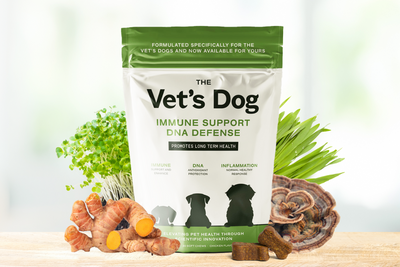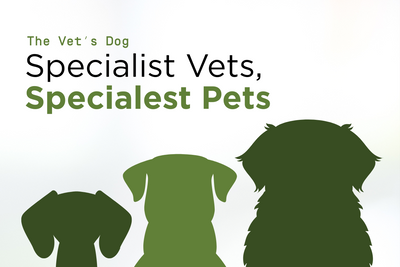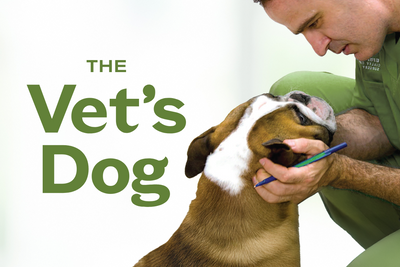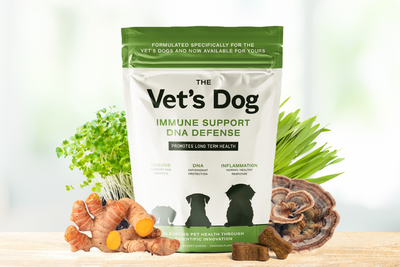— By Dr. Henri Bianucci, Board-Certified Veterinary Surgeon
“Cancer is one of the most difficult challenges a dog and their family may face—but early awareness and vigilance can make all the difference.”
The Growing Concern of Canine Cancer
As a veterinary surgeon, I’ve seen how deeply a cancer diagnosis can affect a family. While we can't always predict when or how cancer may arise, awareness of early warning signs can help us respond quickly and compassionately.
Why Cancer Happens in Dogs
Cancer occurs when cells begin to grow uncontrollably. While we still have much to learn about its root causes, some factors include:
-
Genetics
-
Environmental exposure
-
Cellular aging and oxidative changes
Since many of these changes happen gradually, being observant and proactive plays a crucial role in supporting our dogs’ long-term well-being.
Early Signs to Watch For
Dogs can’t always communicate when something feels off. Common signs to watch include:
-
Lumps or bumps that grow or change
-
Loss of appetite or sudden weight loss
-
Unusual fatigue
-
Persistent sores or changes in behavior
If you notice any of these, consult your veterinarian. Early intervention can sometimes make a difference in treatment options and outcomes.
Immune Health and Wellness
Your dog’s immune system plays an important role in maintaining overall health. While it’s not a cure or guarantee against any condition, focusing on general wellness—through nutrition, activity, and stress management—can help maintain balance in your dog’s system.
Here are a few steps to consider:
-
Offer a nutrient-rich, balanced diet
-
Provide daily movement and engagement
-
Reduce exposure to environmental stressors when possible
-
Maintain a routine of regular veterinary checkups
Final Thoughts
No one wants to think about cancer, but staying informed can help us feel more prepared. By keeping a close eye on your dog’s health and seeking professional advice when you notice changes, you’re already taking an important step toward supporting their quality of life.
When in doubt, trust your instincts and reach out to your veterinary team. Your dog depends on you to be their advocate.






